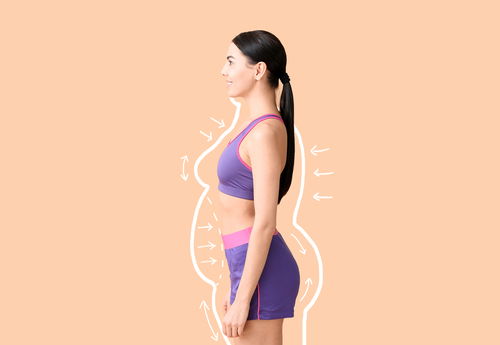Set Realistic Goals That You Want to Achieve

If you’ve struggled to lose weight, losing weight takes time, but it's worth it. Replace high-calorie foods with lower-calorie, fiber-rich options. Stay hydrated, get enough sleep, and aim for a calorie deficit that includes nutritionally dense foods. While exercise is often touted as the key, the truth is what you eat plays a much bigger role in weight loss. It's easier to consume fewer calories than it is to burn. Plus, when you exercise more, your body may increase your hunger.
When you're not losing weight despite being in a calorie deficit, consider other factors like stress levels, sleep patterns, hormonal changes, aging, or other health conditions or medications that may be influencing your ability to lose weight. Set realistic goals based on the changes you want to make and ensure your eating pattern includes healthy choices from all food groups. Always avoid overly following restrictive diets that leave you feeling guilty or deprived.
Tracking Holds You Accountable
By setting hard numbers as your targets, you can track your progress and experience the satisfaction of reaching your goals. Benefits of tracking your food and physical activity includes:
1) Holds you more accountable – Food and exercise tracking holds you accountable. After all, it is easy to forget everything you’ve eaten in a day or which days you skipped your daily walk.
2) Document daily eating habits – Tracking macros (fat, carbs, and protein), water, vitamins, and minerals is helpful for anyone, regardless of a goal of weight change and maintenance.
3) Provides roadmap to do better – In addition to helping you lose weight, tracking your activity can also improve your overall health. Regular exercise has been shown to reduce the risk of chronic diseases.
4) Helps you achieve your goals – In addition to watching your food intake more closely, tracking provides the awareness of what you need to do to manage the bad habits you’ve tried to ignore.
Physical Activity Helps Create an Energy Deficit
Simply put, if you consume fewer calories than you burn, you will lose weight. However, incorporating physical activity allows you to burn even more calories than through dieting alone. The more you exercise, the more calories you'll torch. While reducing calorie intake can lead to weight loss, combining a healthy diet with physical activity can supercharge your results. Exercise increases the number of calories you burn, making it easier to create a calorie deficit.
While exercise alone may not lead to weight loss once you reach a workout plateau, combining physical activity with reduced calorie intake creates a calorie deficit that promotes weight loss. Make better food choices to boost healthy living. While cutting back on food can help, adding physical activity allows you to torch even more calories. Most of the weight loss occurs when you consume fewer calories than you burn by replacing empty calories with healthier options.
By submitting this form, you agree to receive marketing text messages from us at the number provided, including messages sent by autodialer. Consent is not a condition of any purchase. Message and data rates may apply. Message frequency varies. Reply HELP for help or STOP to cancel. View our Privacy Policy and Terms of Service.

